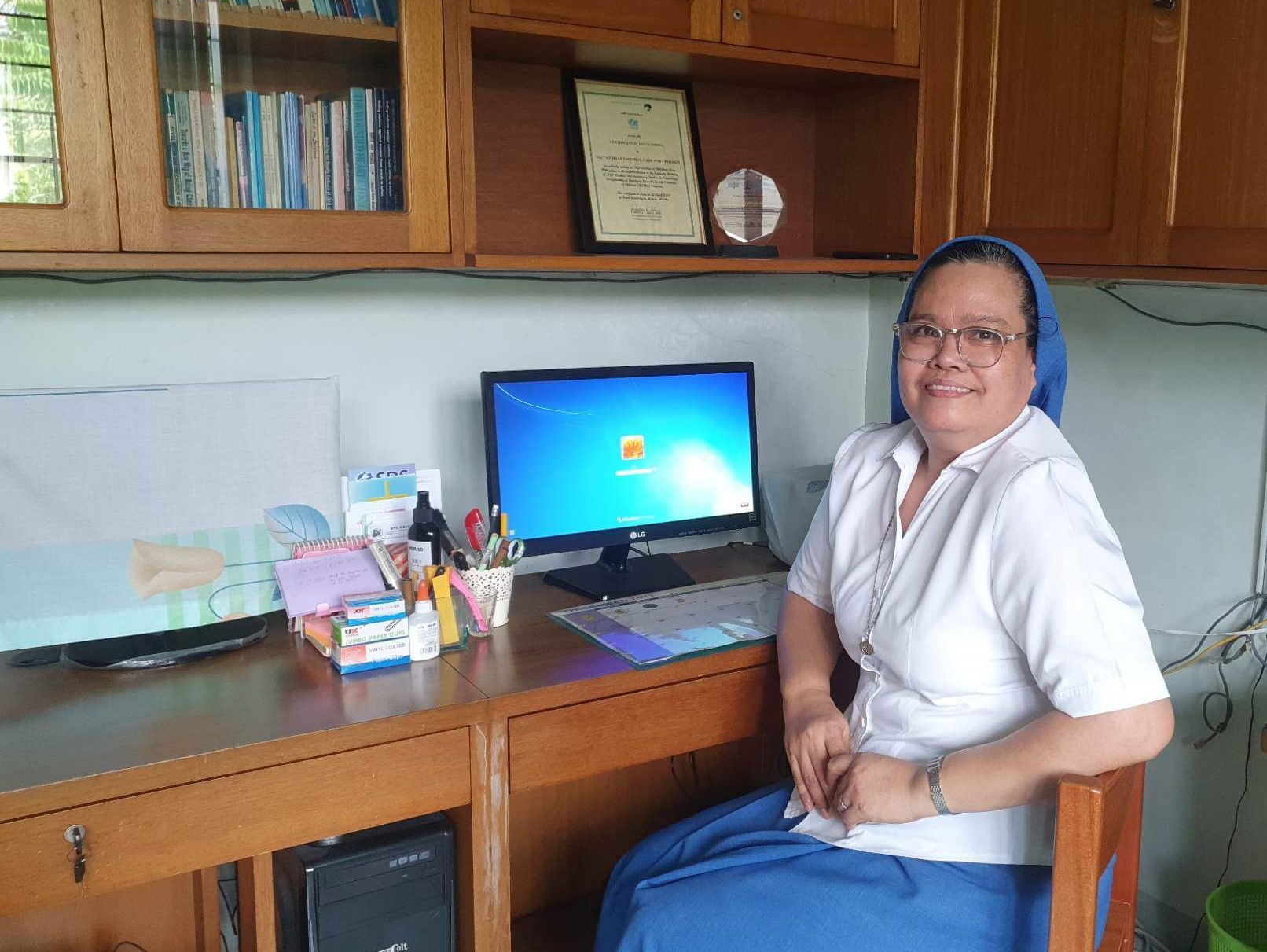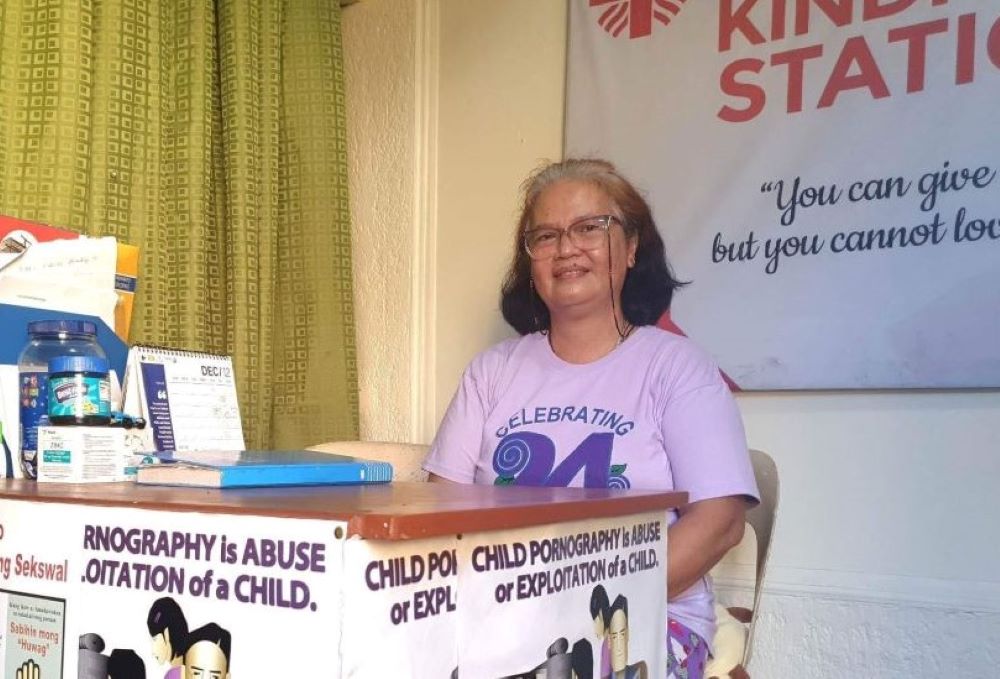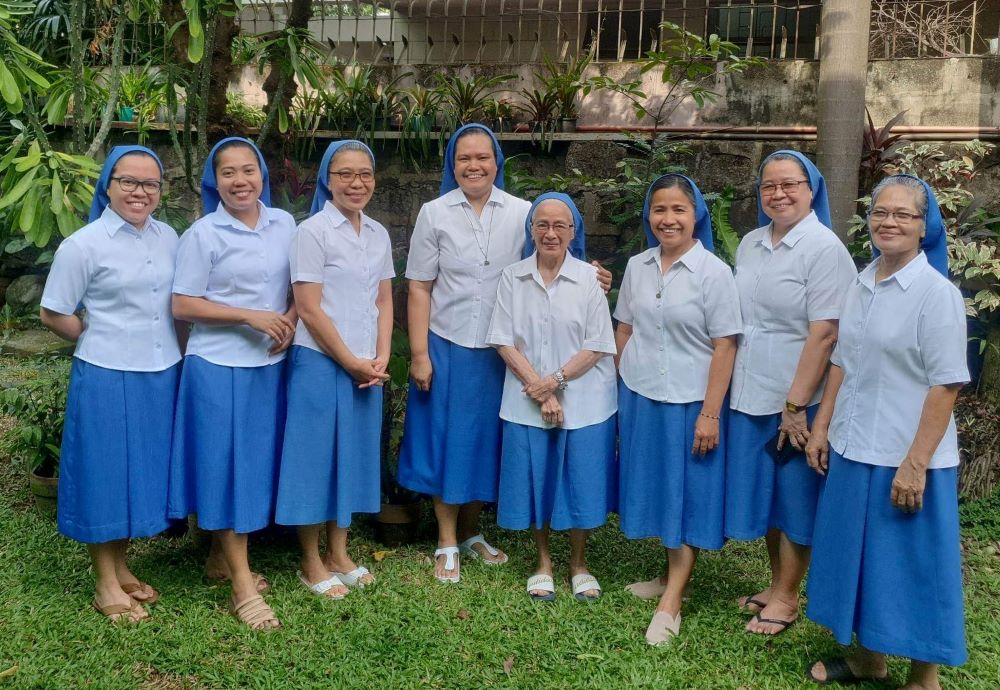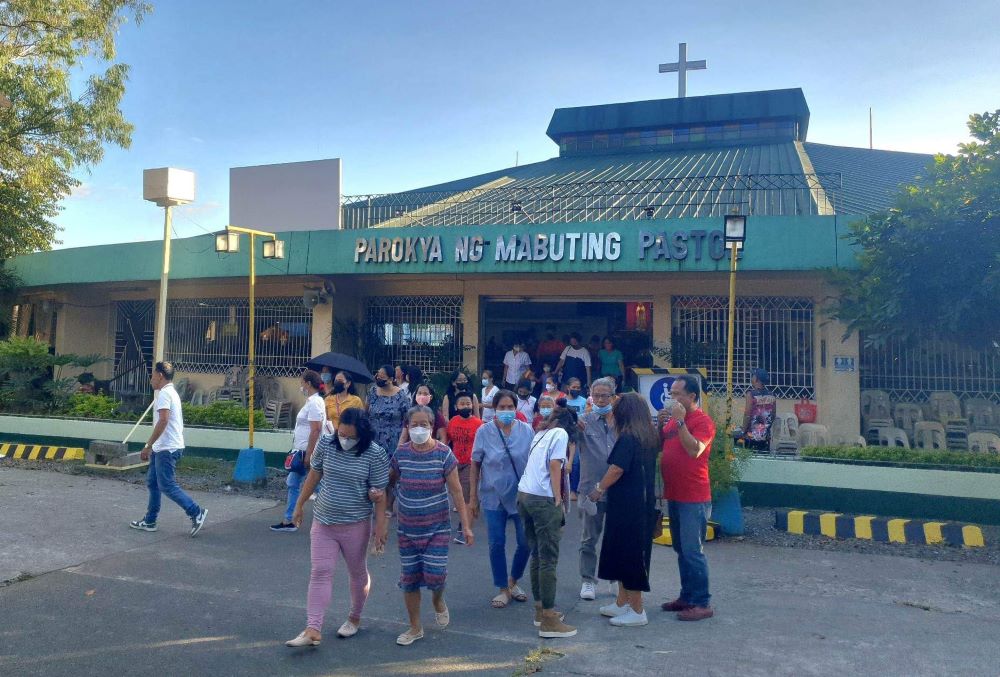
Sr. Eloisa Adamos Holdiem is executive director of Salvatorian Pastoral Care for Children. Its national office is in New Manila, Quezon City, Philippines (Oliver Samson)
For the last 20 years, the Sisters of the Divine Savior and partner organizations have helped women and children heal from sexual abuse and, in some cases, exact justice against those who abused them.
The congregation established its first women and children's rights advocate group in Parokya ng Mabuting Pastol (Parish of the Good Shepherd) in the Diocese of Novaliches in 2001. Since then, the Sisters of the Divine Savior have helped start advocate groups in 39 parishes nationwide.
The advocates educate children and adults on their rights, said Sr. Eloisa Adamos Holdiem, a member of the Sisters of the Divine Savior and executive director of Salvatorian Pastoral Care for Children.
Some women and children have no idea they have been abused until they learn about their rights, said Janalyn Palomique, a staff member at the Salvatorian Pastoral Care for Children. The advocates teach women and children self-awareness and which parts of their body no one should touch.
'Our advocates are the eyes and ears for women and children in the community.
—Sr. Eloisa Adamos Holdiem
The groups' leaders are trained to become social workers who know how to handle cases and connect them with proper government agencies, nongovernmental organizations, and the program's partners to provide victims with temporary shelter, recovery programs and legal assistance.
Developing a core group of advocates takes time, said Holdiem, a licensed teacher and registered social worker.
She said groups advocating for justice for people who have been abused should have their own office in a parish, the competence to train people to become advocates, and the efficiency to provide victims with necessary assistance for their recovery and in demanding justice.
When one group has reached the ability to stand on its own, the congregation moves to other parishes to build more groups. From 2001 to 2012, the congregation established volunteer groups in nine parishes: six in the Diocese of Novaliches and three in the Archdiocese of Cebu.
In 2013, the congregation entered a partnership with the Diocese of San Jose de Antique to create volunteer groups in the Visayas. Women and children's rights advocate groups now exist in the 15 parishes in the diocese. The congregation also formed volunteer groups in three parishes in the Diocese of Alaminos in northern Philippines and 12 parishes in the Archdiocese of Manila, Holdiem said.

Norma Alegre, women and children's rights advocate, is seen at the Salvatorian Pastoral Care for Children office in Parokya ng Mabuting Pastol in Quezon City, Philippines. Alegre's group, established in 2001, is the first group the Sisters of the Divine Savior created to educate and advocate for abuse victims. (Oliver Samson)
"The goal of the congregation is to establish protection programs for women and children in the parishes," Holdiem said. "Our advocates are the eyes and ears for women and children in the community. But the program is preventive in nature so that no more abuses will happen."
The volunteers are extensively trained based on a module that the congregation prepared.
"Some groups took seven years of capacity-building before they were able to sustain their own," Holdiem said.
In the past two decades, the volunteers recorded cases of incestuous abuse of girls, physical abuse of family members who are children, commercial sex exploitation and bullying at school.
Most of the cases involved incest, Holdiem said.
"We also had a case where altar boys were sexually abused by their own leader," she said.

Members of Sisters of the Divine Savior at their convent in New Manila, Quezon City, Philippines (Oliver Samson)
The volunteer groups successfully petitioned school officials to remove a principal from service in 2008 for sexually abusing a boy, said Norma Alegre, a volunteer in Parokya ng Mabuting Pastol. However, the case did not reach the courts because the principal paid the victim, she said.
The program also received three separate sexual abuse complaints involving a priest, Holdiem said. Complaints involving priests usually end up unresolved because the victims and their families don't have the financial means to pursue a case in court.
People who seek the help of advocates for cases involving priests usually say they were groomed for a period of time before the abuse happened, Palomique said. Grooming might include receiving scholarships, school allowances, food and other things before the alleged abuse.

The Sisters of the Divine Savior pioneered its women's and children's protection program at Parokya ng Mabuting Pastol church in Quezon City, Philippines, more than 20 years ago The congregation has created 39 such groups across the country. (Oliver Samson)
The volunteers offer counseling to those who have been abused and connect them to proper government agencies if they seek justice, Alegre said. Poverty and illiteracy are among the reasons women and children are vulnerable to abuse, she added.
Some victims have become women and children's rights advocates themselves, Palomique said.
"In our experience in the past two decades, the victims had more faith in reporting abuse to church people than to the police or barangay [district] officials," Palomique said. "People have still that trust in church people."
The parish priest has a crucial role in the success of the congregation's program, Holdiem said. Without his support, the energy of the volunteers will get exhausted.
If the number of priests championing women and children's rights grows, abuse would greatly drop in communities, Palomique said.
Advertisement
Alegre said cases of abuse reported to their office dropped in recent years and attributed it to the continuous efforts.
"Abuse can happen anywhere, but don't let it happen to you because we can always empower ourselves," Holdiem said. "We capacitate ourselves so that abuse will not happen to us."
The program aspires to establish women and children's rights volunteer groups in every diocese in the country, Palomique said.
"Faith without action is dead," Holdiem said. "Telling people that God loves them may not mean anything to them if we don't help those people who are victims of abuse and people who are in need."







